Current Affairs 03 October 2023
Today’s News
Medicine Nobel 2023 goes to duo who paved the way for mRNA COVID vaccines
(Current Affairs 03 October 2023 | Relevant for Prelims)

- The 2023 Nobel Prize in Physiology or Medicine has been awarded to Hungarian biochemist Katalin Karikó and American physicianscientist Drew Weissman. Announcing the names on Monday, the Royal Swedish Academy of Science said they had been feted for “discoveries concerning nucleoside base modification that enabled the development of effective mRNA vaccines against COVID19”.
- That the citation mentions the pandemic shows the effect mRNA vaccines had on its evolution as well as how the global disaster became an opportunity for the vaccine technology to showcase its potential.
Refresh Basics

M-RNA
- Messenger RNA (a mRNA) is a type of single-stranded RNA involved in protein synthesis.
- mRNA is made from a DNA template during the process of transcription.
- The role of mRNA is to carry protein information from the DNA in a cell’s nucleus to the cell’s cytoplasm (watery interior), where the protein-making machinery reads the mRNA sequence and translates each three-base codon into its corresponding amino acid in a growing protein chain.
- So mRNA really is a form of nucleic acid which helps the human genome, which is coded in DNA, to be read by the cellular machinery.
mRNA vaccines
- MRNA vaccines work by introducing a piece of mRNA that corresponds to a viral protein, usually a small piece of a protein found on the virus’s outer membrane.
- By using this mRNA, cells can produce the viral protein.
- As part of a normal immune response, the immune system recognizes that the protein is foreign and produces specialized proteins called antibodies.
- Once produced, antibodies remain in the body, even after the body has rid itself of the pathogen, so that the immune system can quickly respond if exposed again.
- Antibodies help protect the body against infection by recognizing individual viruses or other pathogens, attaching to them, and marking the pathogens for destruction.
- If a person is exposed to a virus after receiving mRNA vaccination for it, antibodies can quickly recognize it, attach to it, and mark it for destruction before it can cause serious illness.
- Individuals who get an mRNA vaccine are not exposed to the virus, nor can they become infected with the virus by the vaccine.
Capturing the rains: India needs all weather insurance against vagaries of global climate
(Current Affairs 03 October 2023 | Relevant for GS paper-3)

- For the first time since 2018, India has reported a deficit monsoon. From June to September this year, India received 82 cm of rainfall, nearly 6% lower than the 89 cm that is considered ‘normal’.
- Beginning April, there were enough indications that the monsoon would be subdued with an El Niño on the horizon. This cyclical warming of the central and eastern Pacific ocean usually corresponds to a decline in rainfall over India, particularly the northwest.
- Between 2019 and 2022, the Indian monsoon was significantly impacted by the converse phenomenon – a cooling La Niña — that sometimes is associated with above normal rainfall. By those metrics, the expectations of a normal monsoon in 2023 were muted. However, the experience of the monsoon this year was far from the ordinary.
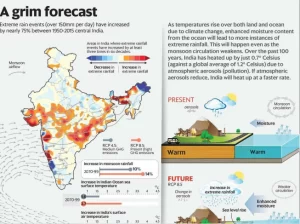
- About 9% of the country received ‘excess’ rainfall with 18% getting ‘deficient’ and the rest of the country, ‘normal’ rainfall. While on one hand, August — the second most important monsoon month — posted a third less than its normal, several States in north India, which were expecting minimal rainfall, were deluged following multiple episodes of record rainfall.
- Cloudbursts were reported in Himachal Pradesh in August. It is worthwhile to note here that these episodes of intense rain were due to socalled western disturbances that are extra tropical storms from the Mediterranean region and normally not expected to play a major part in the monsoon.
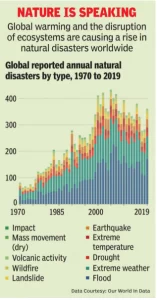
- At the other end of the spectrum were drought like conditions in Maharashtra. Extreme water stress was also reported out of Chhattisgarh, Bihar and Karnataka, where in th-e case of Karnataka, matters came to a head with neighbouring Tamil Nadu over the sharing of water from the Cauvery river.
- The spatial and temporal variance of the monsoon reiterates the need to invest in more resilient infrastructure that can be an all weather insurance against the increasingly unpredictable vagaries of the global climate.
- The pattern in recent years is to improve forecast models that are better able to warn of significant changes in weather a week or two ahead than having approaches that fail to capture the dynamics of the Indian monsoon.
Criminal law Bills and a hollow decolonisation
(Current Affairs 03 October 2023 |Relevant for GS paper-2)
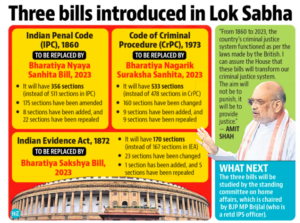
- In introducing the three criminal law Bills in 2023 and, earlier, while setting up the Committee for Reforms in Criminal Law in 2020, a lot was said about the decolonisation that these Bills will bring about.
- Colonisation is, broadly, a process of oppression where the colonised become vehicles for the supreme colonial power to fulfil its desires. The subject unquestioningly serves the colonial state and remains at its mercy. Those in power have rights; those without must oblige. At the same time, the colonial state also considers itself to forever be at risk of being victimised by those it rules.
- The purpose of laws such as the Indian Penal Code (1860) which the Bharatiya Nyaya Sanhita (BNS) seeks to replace, was not just to maintain law and order; it was an opportunity for the colonial state to legitimise, through the law, its status as a potential victim under threat from the people it colonised.
- A ‘decolonised’ or a postcolonial law, then, would necessarily need to reflect the changed relationship between the citizen and the state. An independent people are not to serve but to be served through the state and government they give themselves.
- The Bills fail these essential requirements both in how they have been brought about and their content. The framework produced by them views citizens with such increased suspicion and mistrust that the state appears to almost be in opposition to the citizen.
- Through the major changes in the Bills run twin threads which severely compromise people and simultaneously arm the state against them. That almost all proposed changes to the BNS (see provisions on organised crime, false information jeopardising sovereignty, acts endangering sovereignty, terrorist acts) are overbroad, and constitutionally suspect is not just the result of poor drafting.
- A notable feature of colonisation is suppression in the guise of security by giving the executive unchecked police powers. This particular feature is so deeply entrenched that the Indian state has only increased its police powers post Independence.
- The Bharatiya Nagarik Suraksha Sanhita (BNSS) — it repeals the Code of Criminal Procedure, 1973 — expands those powers considerably. For instance, it allows police custody for periods longer than is allowed under the current Criminal Procedure Code. Some provisions of the BNS, such as terrorist acts, allow the police powers that are significantly broader than even those under harsh laws, such as the Unlawful Activities (Prevention) Act.
- Enough has been written about the police and prison being relics of colonisation. Yet, the decolonisation that the Bills seek to achieve provides no scope for their reform. Without reorienting the foundational perspective of these institutions, though, calls for decolonisation will remain vacuous.
- Without reorienting the foundational perspective of these institutions, though, calls for decolonisation will remain vacuous. The hope of decolonisation will remain unfulfilled because the state has not indicated, either now or earlier, the willingness to audit and reimagine these essential instrumentalities of colonial power.
- Increasing terms of punishments across the board, as the BNS does, while broadening police powers borrows heavily from the logic of colonial criminal law. What this means for India’s severely overcrowded prisons and the implications on policing (how, who and on whom) are either non considerations or overlooked considerations.
- The narrative of decolonisation surrounding the Bills must not be seen in isolation from developments in other areas of criminal law that are contemporaneously pushing us back into colonial ways and outcomes of lawmaking.
- Though the idea of decolonisation must be seen in opposition to colonization, that is not all it is. It is an optimistic endeavor brimming with the promise of a people shaping their own destinies.
Refresh basics
Criminal Justice System
Criminal Justice System refers to the agencies of government charged with enforcing law, adjudicating crime, and correcting criminal conduct.
Objective:
- To prevent the occurrence of crime.
- To punish the transgressors and the criminals.
- To rehabilitate the transgressors and the criminals.
- To compensate the victims as far as possible.
- To maintain law and order in society.
- To deter offenders from committing any criminal act in the future
Building BRICS for the future
(Current Affairs 03 October 2023 | Relevant for GS paper-2, International Relation)

- In August, six new members were inducted into the BRICS grouping, in South Africa. While many believe that this meeting did not have productive results, we need to look at BRICS from the perspective of how it has evolved rather than the results of one meeting.
- First, it is important to note that BRICS emerged out of an economic compulsion. It does not provide military or security support to various countries, is not involved in the policing of nations, and does not provide peacekeepers.
- Compare this to, say, NATO: European Allies and Canada have invested an extra $350 billion since 2014, with eight consecutive years of increased defence spending.
- The GDP of BRICS is now 36% of the global GDP and the population of its members will be 47% of the world population by 2050.
- Second, two members of BRICS are China and India, which together contain one third of the world’s population. The two countries are the fastest growing economies and are expected to be among the top three economies of the world by 2030.
- Both countries understand that globally, bilateral ties have seen a transformation following the formation of economic blocs such as the European Union or ASEAN, as such blocs accelerate trade and investment.
- While India and China have bilateral challenges at the political and diplomatic levels since their stand off at Doklam in 2017, trade between the two countries has continued to grow significantly.
- That Chinese President Xi Jinping skipped the G20 summit in New Delhi will not impact this economic cooperation. We should never forget that economics and business trumps politics.
- Third, there has been some polarisation between the U.S. and other parts of the world. This was especially becoming evident during the Trump administration. Many countries have issues with the U.S.’s stance against China: the U.S. seems keen to impose tariffs and create other barriers to restrict China’s expansion in trade and investment.
- China has made strides in certain areas like communication infrastructure and electric mobility, too, which the U.S. would like to contain. This is expected to get worse.
- Similarly, the way refugees are being treated in Europe do not give a positive perspective of a world that is getting increasingly globalised. Countries such as the U.S. have flouted World Trade Organization rules and have not penalised for the same.
- The search for an alternative such as the Non Aligned Movement to tackle Cold War challenges has given hope of a new order; thus, many countries are applying for membership to this group.
- Fourth, the U.S. dollar has been the dominant global currency all this time. We have seen the demise of travelers’ checks, of people carrying authorized currency that was equivalent to dollar bills.
- Both India and China have made great progress in this field; they are far ahead of the U.S. and Europe. Both India and China are pushing for more trade, investment, and business in their currencies and together, through BRICS, they can push their own currencies as alternative currencies to the dollar.
- Finally, the continent that promises economic growth this century is Africa. The way France has intervened in Niger or the manner in which migrants have been treated in Europe provide Africans with a negative image about Europe.
- BRICS will again be out of the news until the next summit. However, each summit generates some spark that provides the building blocks for different networks of people for the future. This is a group for the long run.
Refresh Basics
BRICS
- BRICS is an acronym for the grouping of the world’s leading emerging economies, namely Brazil, Russia, India, China, and South Africa.
- In 2001, the British Economist Jim O’Neill coined the term BRIC to describe the four emerging economies of Brazil, Russia, India, and China.
- The grouping was formalized during the first meeting of BRIC Foreign Ministers in 2006.
- South Africa was invited to join BRIC in December 2010, after which the group adopted the acronym BRICS.
Share of BRICS:
The BRICS brings together five of the largest developing countries of the world, representing 41% of the global population, 24% of the global GDP and 16 % of the global trade.
Chairmanship:
- The chairmanship of the forum is rotated annually among the members, in accordance with the acronym B-R-I-C-S.
- India hosted the chair for the 2021 BRICS Summit.
Initiatives of the BRICS:
- New Development Bank:
- During the Sixth BRICS Summit in Fortaleza (Brazil) in 2014, the leaders signed the Agreement establishing the New Development Bank (NDB – Shanghai, China).
- It has so far approved 70 infrastructure and sustainable development projects worth.
Contingent Reserve Arrangement:
- In 2014, the BRICS governments had signed a treaty on the setting up of the contingent reserve arrangement
- The arrangement is aimed at forestalling short-term balance of payments pressures, providing mutual support and strengthening the financial stability of the BRICS nations.
Customs Agreements:
Customs agreements were signed to coordinate and ease trade transport between BRICS countries
Launched of Remote Sensing Satellite:
- In August 2021, the five space agencies signed an agreement on the Cooperation on BRICS Remote Sensing Satellite Constellation.
- The constellation is made up of six existing satellites: Gaofen-6 and Ziyuan III 02, both developed by China, CBERS-4, jointly developed by Brazil and China, Kanopus-V type, developed by Russia, and Resourcesat-2 and 2A, both developed by India.
Rashtriya vayoshri yojna
(Current Affairs 03 October 2023 |Relevant for Prelims)

In a significant initiative to empower senior citizens and persons with disabilities across India, the Ministry of Social Justice and Empowerment, Government of India, organized ‘Samajik Adhikarita Shivirs’ camps at 72 locations simultaneously.
Rashtriya vayoshri yojna
- It was launched in 2017 by the Ministry of Social Justice and Empowerment.
- It is a central sector scheme funded from the Senior Citizens’ Welfare Fund.
- The Scheme is being implemented by the Artificial Limbs Manufacturing Corporation (ALIMCO), a PSU (Public Sector Undertaking) under the Ministry of Social Justice and Empowerment.
Features:
- The eligibility criteria for the scheme are: Senior Citizens, belonging to Below Poverty Line(BPL) category and suffering from any of the age related disability or infirmity.
- The scheme works by distributing free of cost devices, commensurate with the extent of disability or infirmity that is manifested among the eligible senior citizens.
- The devices supported under the scheme are: Walking sticks, Elbow crutches, Walkers/Crutches, Hearing Aids, Wheelchair, Artificial Dentures and Spectacles.
- The scheme is expected to benefit over 5 lakh Senior Citizens across the country.
Related Blogs…
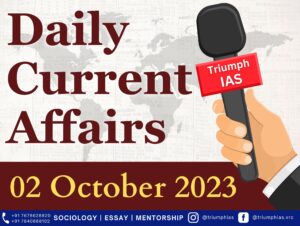 |
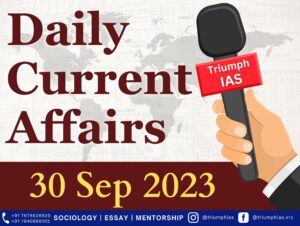 |
GS Related Practices Question…
To master these intricacies and fare well in the Sociology Optional Syllabus, aspiring sociologists might benefit from guidance by the Best Sociology Optional Teacher and participation in the Best Sociology Optional Coaching. These avenues provide comprehensive assistance, ensuring a solid understanding of sociology’s diverse methodologies and techniques.
META TAGS:
Current affairs 03 October 2023, Current affairs 02 October 2023,Today news, Today news GS, Today news upsc, Today news and views, Today news 2023, Today news Current affairs September 2023, Current affairs news, Current affairs book pdf, Current affairs best blog, Current affairs for UPSC, Current affairs 2023, Current affairs contact, Current affairs book, Current affairs program meaning

Choose The Best Sociology Optional Teacher for IAS Preparation?
At the beginning of the journey for Civil Services Examination preparation, many students face a pivotal decision – selecting their optional subject. Questions such as “which optional subject is the best?” and “which optional subject is the most scoring?” frequently come to mind. Choosing the right optional subject, like choosing the best sociology optional teacher, is a subjective yet vital step that requires a thoughtful decision based on facts. A misstep in this crucial decision can indeed prove disastrous.
Ever since the exam pattern was revamped in 2013, the UPSC has eliminated the need for a second optional subject. Now, candidates have to choose only one optional subject for the UPSC Mains, which has two papers of 250 marks each. One of the compelling choices for many has been the sociology optional. However, it’s strongly advised to decide on your optional subject for mains well ahead of time to get sufficient time to complete the syllabus. After all, most students score similarly in General Studies Papers; it’s the score in the optional subject & essay that contributes significantly to the final selection.
“A sound strategy does not rely solely on the popular
Opinion of toppers or famous YouTubers cum teachers.”
It requires understanding one’s ability, interest, and the relevance of the subject, not just for the exam but also for life in general. Hence, when selecting the best sociology teacher, one must consider the usefulness of sociology optional coaching in General Studies, Essay, and Personality Test.
The choice of the optional subject should be based on objective criteria, such as the nature, scope, and size of the syllabus, uniformity and stability in the question pattern, relevance of the syllabic content in daily life in society, and the availability of study material and guidance. For example, choosing the best sociology optional coaching can ensure access to top-quality study materials and experienced teachers. Always remember, the approach of the UPSC optional subject differs from your academic studies of subjects. Therefore, before settling for sociology optional, you need to analyze the syllabus, previous years’ pattern, subject requirements (be it ideal, visionary, numerical, conceptual theoretical), and your comfort level with the subject.
This decision marks a critical point in your UPSC – CSE journey, potentially determining your success in a career in IAS/Civil Services. Therefore, it’s crucial to choose wisely, whether it’s the optional subject or the best sociology optional teacher. Always base your decision on accurate facts, and never let your emotional biases guide your choices. After all, the search for the best sociology optional coaching is about finding the perfect fit for your unique academic needs and aspirations.
To master these intricacies and fare well in the Sociology Optional Syllabus, aspiring sociologists might benefit from guidance by the Best Sociology Optional Teacher and participation in the Best Sociology Optional Coaching. These avenues provide comprehensive assistance, ensuring a solid understanding of sociology’s diverse methodologies and techniques. Sociology, Social theory, Best Sociology Optional Teacher, Best Sociology Optional Coaching, Sociology Optional Syllabus.
Best Sociology Optional Teacher, Sociology Syllabus, Sociology Optional, Sociology Optional Coaching, Best Sociology Optional Coaching, Best Sociology Teacher, Sociology Course, Sociology Teacher, Sociology Foundation, Sociology Foundation Course, Sociology Optional UPSC, Sociology for IAS,
Follow us :



Find More Blogs…
| Compare and contrast Karl Marx’s and Max weber’s | Karl Marx- Historical Materialism |
| Talcott Parsons : Social system | Scope of the subject and comparison with other social sciences |

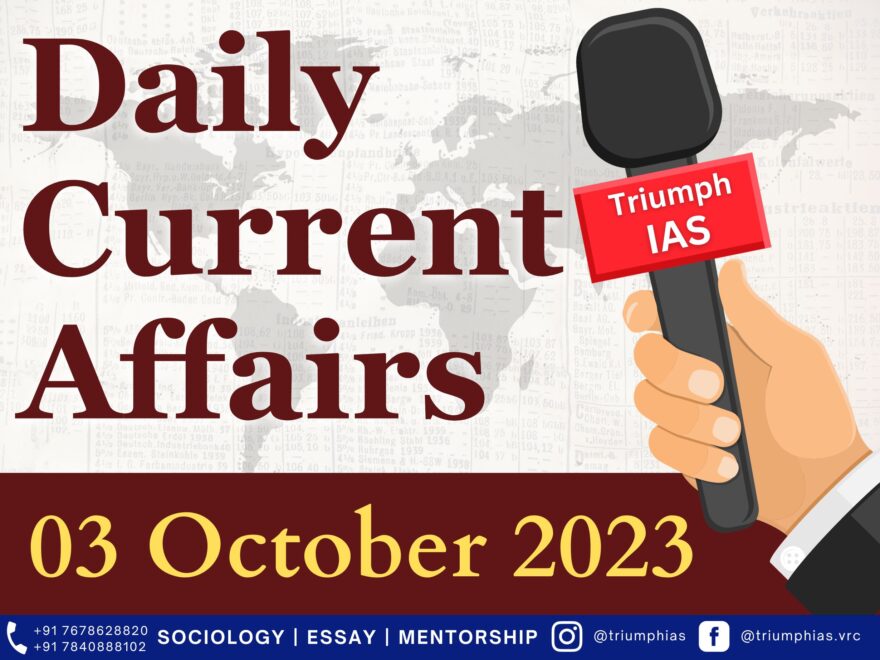


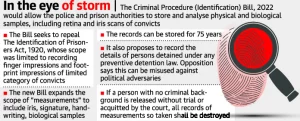

One comment